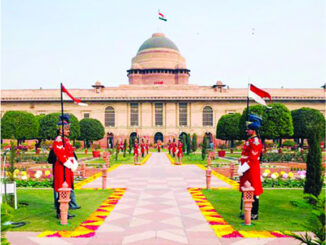
India should oppose indiscriminate attacks on Israel and disproportionate bombing on Gaza
At the open UN Security Council session on Sunday, May 16, on the Gaza conflict, India, a non-permanent member, attempted a delicate balancing act by reaffirming its traditional support for the Palestine cause without abandoning its new friend Israel. T.S. Tirumurti, India’s Permanent Representative at the UN, expressed concern over the violence in Jerusalem and the “possible eviction process” of Palestinian families in Sheikh Jarrah and warned against “attempts to unilaterally change the status quo” in Jerusalem. He also reiterated India’s “strong support for the just Palestinian cause and its unwavering commitment to the two-state solution”. But India was careful not to upset Israel’s sensitivities. There is a direct condemnation of the rocket attacks from Gaza but no direct reference to the disproportionate bombing Israel has been carrying out on the impoverished Gaza Strip since May 10. India also did not make any reference to the status of Jerusalem or the future borders of the two states, in line with a recent change in its policy. Until 2017, the Indian position was that it supported the creation of an independent, sovereign Palestine state based on the 1967 border and with East Jerusalem as its capital that lives alongside Israel. The balancing did not appear to have gone down well with the Israeli side. When Prime Minister Benjamin Netanyahu, who has a good rapport with Narendra Modi, thanked 25 countries that he said stood with Israel, there was no reference to India.
For India, which voted against the creation of Israel in historic Palestine in 1947 in the UN General Assembly, ties with Israel have transformed since the early 1990s. In 2017, Mr. Modi became the first Indian PM to visit Israel and Mr. Netanyahu travelled to India in 2018. While Israel ties are on a strong footing, India cannot ignore the Palestinians for historic, moral, legal and realist reasons. Historically, India, which went through the horrors of 1947, opposed the partition of Palestine. Throughout the Cold War, it remained a strong supporter of Palestinian freedom, taking a moral and legal position against the Israeli occupation, in line with international laws and norms. It established full diplomatic relations with Israel in 1992, in the context of improving Israel-Palestine ties after the Madrid Conference and the changes in the global order following the disintegration of the Soviet Union, but never abandoned the Palestinians. India’s Palestine policy had realist underpinnings too. India has been energy dependent on the Arab world. It cannot alienate the Arab voices or be isolated in the General Assembly, where most member-countries oppose the occupation. These factors should have driven India to take a more emphatic position against both the indiscriminate rocket attacks into Israel, in which 12 people were killed, and the disproportionate bombing of Gaza, which has claimed at least 230 lives, including over 60 children.
(The Hindu)





Be the first to comment